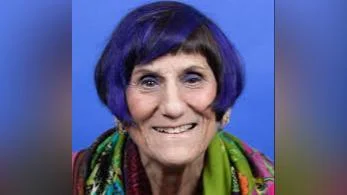Peter Salovey President | Yale University
Peter Salovey President | Yale University
In the 2020 presidential election, a small percentage of voters in battleground states showed a tendency to split their tickets. According to a recent analysis partly funded by Yale’s Institution for Social and Policy Studies, 1.9% of Republican voters who supported Republican candidates for Congress and state legislative seats also voted for Joe Biden. Similarly, among Democrats who supported lower-office Democratic candidates, 1% cast their votes for Donald Trump.
"People often focus on anti-Trump Republicans, but this finding reminds us that there are Democrats who didn’t vote for Biden," stated ISPS faculty fellow Shiro Kuriwaki. He co-led the project with researchers from several prestigious institutions including Yale, MIT, UCLA, Columbia University, and Harvard University. "At the same time, I had personally anticipated that more than 2% of solid Republican voters would have voted for Biden."
The study utilized a unique dataset consisting of digital records from over 42 million ballots cast in 20 states involving more than 2,200 candidates. This dataset allowed researchers to analyze voter behavior at an individual level while maintaining anonymity.
"For political scientists, it’s the only data set that measures in a precise way how people actually voted," explained Kuriwaki. "Surveys are often good enough measures, but they are subject to questions of memory and honesty."
Following allegations of voting irregularities during the 2020 election, requests for electronic files known as cast vote records surged. Kuriwaki and his team accessed these publicly available records and standardized them into a multi-state database. They compared these totals with certified election results across numerous precincts.
"The custom data processing and validation tools we use are innovative in the field," said Mason Reece from MIT. "We hope that both the data we’ve published and our custom tools enable new analyses and inspire future research."
Jeffery Lewis from UCLA noted that while cast vote records offer transparency, they are not sufficient alone to validate an election: "These records should be considered byproducts or an electronic trail of the ballot tabulator."
The study highlighted that such ballot records protect voter anonymity effectively. A paper co-authored by Kuriwaki found that revealing any voter's identity through these records would require specific conditions unlikely to occur.
Co-authors on this study included experts from multiple universities such as Harvard's James Snyder Jr., MIT's Charles Stewart III, Columbia's Shigeo Hirano among others.
Kuriwaki advocates for regular release of cast vote records by counties to enhance transparency: "For election administrators and the public in general, cast vote records provide additional transparency for how we conduct elections."



 Alerts Sign-up
Alerts Sign-up